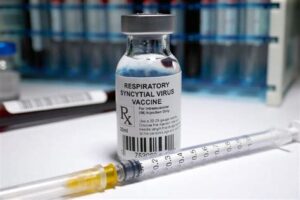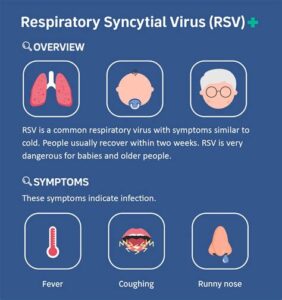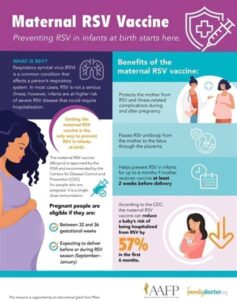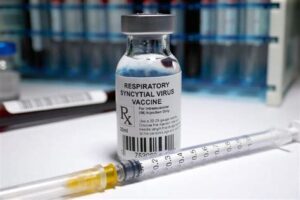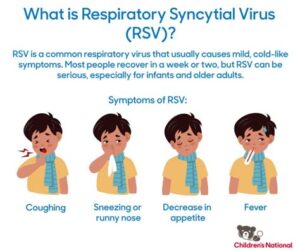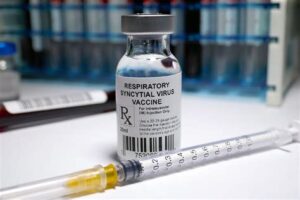Discover RSV and shingles vaccines, their simultaneous administration, benefits, considerations, and potential risks for enhanced health protection.In recent years, the healthcare landscape has evolved, emphasizing the importance of vaccines in preventing various illnesses. Among these, the RSV vaccine and the shingles vaccine have garnered significant attention for their roles in safeguarding public health. The RSV vaccine is designed to protect vulnerable populations, particularly infants and older adults, from respiratory syncytial virus, while the shingles vaccine is aimed at reducing the risk of shingles and its painful complications in older adults. As healthcare providers and patients consider the most effective vaccination strategies, many are asking whether these two vaccines can be administered simultaneously. In this blog post, we will explore each vaccine’s purpose and effectiveness, the potential benefits of receiving them together, and important considerations to help you make informed choices about your health.
What is RSV vaccine?
The RSV vaccine, or Respiratory Syncytial Virus vaccine, is designed to protect against RSV, a common virus that can cause serious respiratory illnesses, especially in young children, the elderly, and those with weakened immune systems. RSV infections are a leading cause of hospitalization in infants and can result in severe illness in older adults.
The vaccine works by stimulating the body’s immune response to recognize and fight the RSV virus, thus reducing the risk of severe infections. While there are several candidates for RSV vaccines currently in development, a number of them have shown promising results in clinical trials.
For individuals who are particularly vulnerable to RSV, such as premature infants or elderly individuals with underlying health conditions, vaccination can offer a crucial layer of protection. By receiving the RSV vaccine, these populations can potentially avoid the complications associated with RSV infections and enhance overall public health outcomes.
What is shingles vaccine?
The shingles vaccine is designed to protect individuals from developing shingles, a painful rash caused by the reactivation of the varicella-zoster virus, which also causes chickenpox. Typically administered to adults aged 50 and older, this vaccine reduces the risk of shingles and its complications, such as postherpetic neuralgia, a condition characterized by severe nerve pain that can persist long after the rash has healed.
There are two primary formulations of the shingles vaccine available: Zoster Vaccine Live (Zostavax) and Recombinant Zoster Vaccine (Shingrix). While Zostavax has been a traditional option, Shingrix has become the preferred choice due to its higher efficacy and longer-lasting protection.
The shingles vaccine works by prompting the immune system to build a robust defense against the varicella-zoster virus. Individuals who have had chickenpox in the past are at risk for developing shingles later in life, making vaccination an essential preventive measure.
Can they be given together?
The question of whether the RSV vaccine and the shingles vaccine can be administered together is an important one for public health and for individuals considering vaccination. Current research indicates that both vaccines can safely be administered during the same visit. However, it is essential to consult healthcare professionals before making any decisions regarding simultaneous vaccinations.
The RSV (Respiratory Syncytial Virus) vaccine is primarily recommended for infants and older adults, while the shingles vaccine is advised for older adults, generally starting from the age of 50. As such, those who are eligible for both vaccines may particularly benefit from receiving them at the same time, which can increase convenience and adherence to vaccination schedules.
Healthcare providers often assess individual patient history before recommending concurrent vaccinations. While significant studies support the safety of administering both vaccines simultaneously, certain conditions or individual health factors may affect this decision. Therefore, it’s always best to discuss your specific
Potential benefits of same-time administration
Administering the RSV and shingles vaccines at the same time can provide several significant benefits. One of the primary advantages is the reduction of healthcare visits. Patients often find it challenging to schedule multiple appointments, so combining these vaccinations into a single visit saves time and resources for both the patient and the healthcare provider.
Additionally, same-time administration may enhance compliance rates for vaccination. When patients understand that they can receive both vaccines simultaneously, they may be more likely to complete their vaccination schedules. This is particularly important for populations at higher risk of respiratory illnesses and shingles, such as older adults.
Moreover, some studies suggest that combining vaccines may lead to a better immune response. When the body is primed to recognize multiple threats simultaneously, it could lead to a more robust defense against both respiratory syncytial virus and varicella-zoster virus. This is especially critical given the age demographics that are at risk for both diseases.
Considerations and potential risks
When considering the administration of the RSV and shingles vaccines at the same time, there are several important considerations and potential risks that individuals and healthcare providers should take into account. This dual approach can offer convenience, but it’s essential to weigh the benefits against possible side effects and complications.
One of the primary considerations is the immune response elicited by both vaccines when given simultaneously. While studies suggest that co-administration does not significantly reduce the effectiveness of either vaccine, there could be an increased risk of mild to moderate side effects such as soreness at the injection site, fever, or fatigue. It’s crucial for patients to be informed about these potential reactions and to monitor them following vaccination.
Additionally, certain populations, including older adults or individuals with compromised immune systems, might be at a higher risk for adverse reactions. Therefore, a thorough review of individual health history is imperative before deciding on simultaneous vaccination. This ensures each patient’s unique health circumstances are considered, maximizing the benefits while minimizing risks.
Frequently Asked Questions
Can I receive the RSV and shingles vaccines during the same appointment?
Yes, you can receive both the RSV and shingles vaccines at the same appointment, as there are no known interactions between the two.
What is RSV and why is it important to get vaccinated?
RSV, or respiratory syncytial virus, is a virus that causes respiratory infections, particularly in young children and older adults. Vaccination helps protect vulnerable populations from severe illness.
Who should consider getting the shingles vaccine?
The shingles vaccine is recommended for adults aged 50 and older, as they are at a higher risk of developing shingles and its complications.
Are there side effects to getting the RSV and shingles vaccines together?
Like all vaccines, there may be some side effects, such as soreness at the injection site, mild fever, or fatigue. However, these are generally mild and temporary.
How effective are the RSV and shingles vaccines?
The RSV vaccine has shown promising effectiveness in reducing severe illness in vulnerable populations, while the shingles vaccine is estimated to be about 90% effective in preventing shingles in vaccinated individuals.
What should I tell my healthcare provider before getting vaccinated?
Inform your healthcare provider about any allergies, current medications, or medical conditions you have, as well as your vaccination history.
Is there a waiting period between receiving the RSV and shingles vaccines?
There is no required waiting period between receiving the RSV and shingles vaccines; they can be administered at the same time or spaced according to your healthcare provider’s recommendation.
